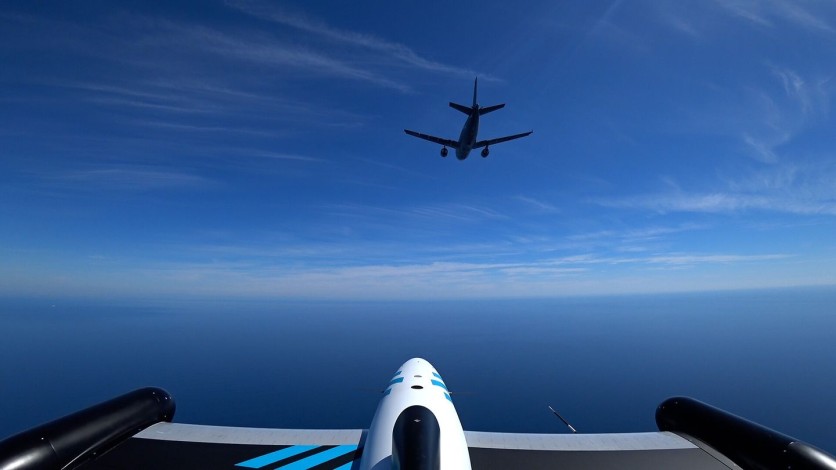Airbus innovation division UpNext, in collaboration with the Airbus Defence and Space business unit, has successfully conducted tests for its autonomous in-flight refueling technology named Auto'Mate.
This technology aims to automate the aerial refueling process, presenting a significant advancement in military force projection capabilities, with potential applications in defense and civil aviation sectors.

The Auto'Mate Tech
The Auto'Mate technology represents a fully autonomous in-flight refueling system. This development is part of Airbus's broader efforts to explore innovative projects, including pilot assistance technologies, new propulsion systems, and aircraft design enhancements, all contributing to enhanced flight safety, operational efficiency, and sustainability.
In March, a pivotal demonstration of Auto'Mate took place, featuring an Airbus testbed tanker aircraft and four unmanned drones. The success of this initial test marked a major milestone in progress toward autonomous in-flight refueling capabilities.
In a subsequent flight test campaign earlier this month, the Auto'Mate demonstrator further showcased its potential in Autonomous Assets Air to Air Refuelling (A4R) operations, flying alongside five unmanned drones, including digital twins of the Airbus DT-25, under the guidance of an A310 MRTT tanker.
Advanced relative navigation based on artificial intelligence and cooperative control technologies were employed during this simulated refueling operation. The key advantage of the Auto'Mate technology lies in its ability to automate in-flight refueling without human intervention.
The system allows an aerial tanker to assume control of a "receiver" aircraft from a distance of several kilometers and autonomously guide and control it into the precise position for fuel transfer.
The actual fuel transfer, facilitated by the tanker's refueling probe, is followed by a safe separation maneuver upon operation completion.
Read Also : Airbus 'Detumbler' Aims to Keep Dead Satellites Tumbling in the Earth's Orbit-How It Works
The Promise of Autonomous Tech
Introducing autonomous technologies promises enhanced safety, reliability, and efficiency in the refueling process. Additional benefits include the ability to conduct operations more effectively in low-visibility conditions and a reduction in training costs for flight crews.
Notably, Auto'Mate technology allows for refueling non-piloted combat air vehicles like drones. This has implications for unmanned elements of Europe's Future Combat Air System (FCAS), including remote carriers and "loyal wingman" operations.
The technology also envisions a future wherein autonomous tankers and aerial assets operate without a crew. The development of Auto'Mate is underpinned by three vital technological foundations: navigation, communications, and control.
The navigation system utilizes cameras, high-precision satellite global positioning, LiDAR sensors, and AI to achieve unprecedented position accuracy.
"The A330 MRTT positions Airbus as a leader in the multi-role tanker transport sector, having already pioneered such advancements as the use of fly-by-wire control for the refuelling probe and its development of a high-definition 2D/3D digital system for enhanced viewing by the fuelling operators," the company said in a statement.
The A330 MRTT has garnered orders from various countries, including Australia, France, the North Atlantic Treaty Organization (NATO), Saudi Arabia, Singapore, South Korea, the United Arab Emirates and the United Kingdom.
Related Article : Voyager Space, Airbus Join Forces to Develop Starlab That Could Replace NASA's International Space Station

![Apple Watch Series 10 [GPS 42mm]](https://d.techtimes.com/en/full/453899/apple-watch-series-10-gps-42mm.jpg?w=184&h=103&f=9fb3c2ea2db928c663d1d2eadbcb3e52)



